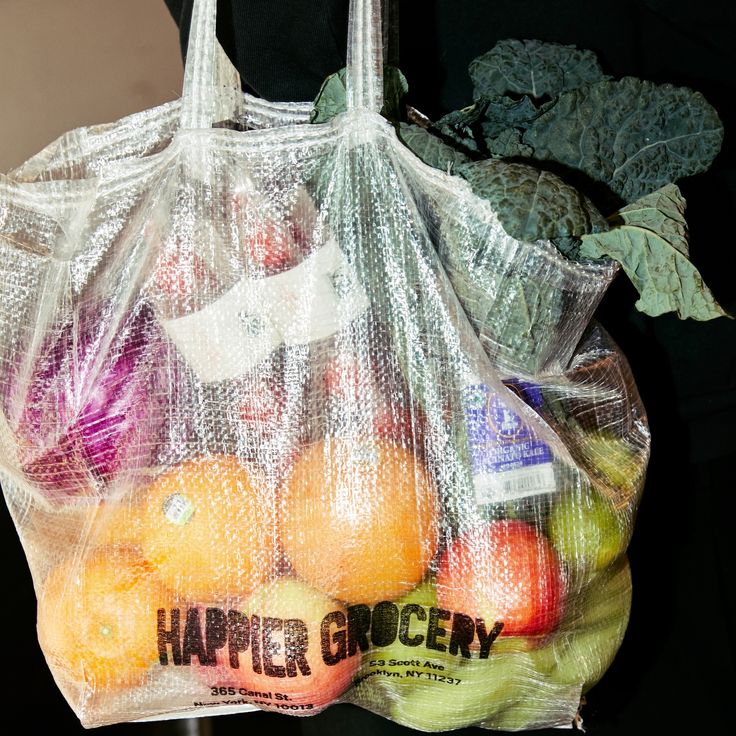Remember when buying groceries, was just… buying groceries? Now it’s turned into a very self conscious decision-making process; some are even turning it into a flex. ༒︎ It seems like nowadays what's in your cart can say as much about you as what you're wearing. ༒︎
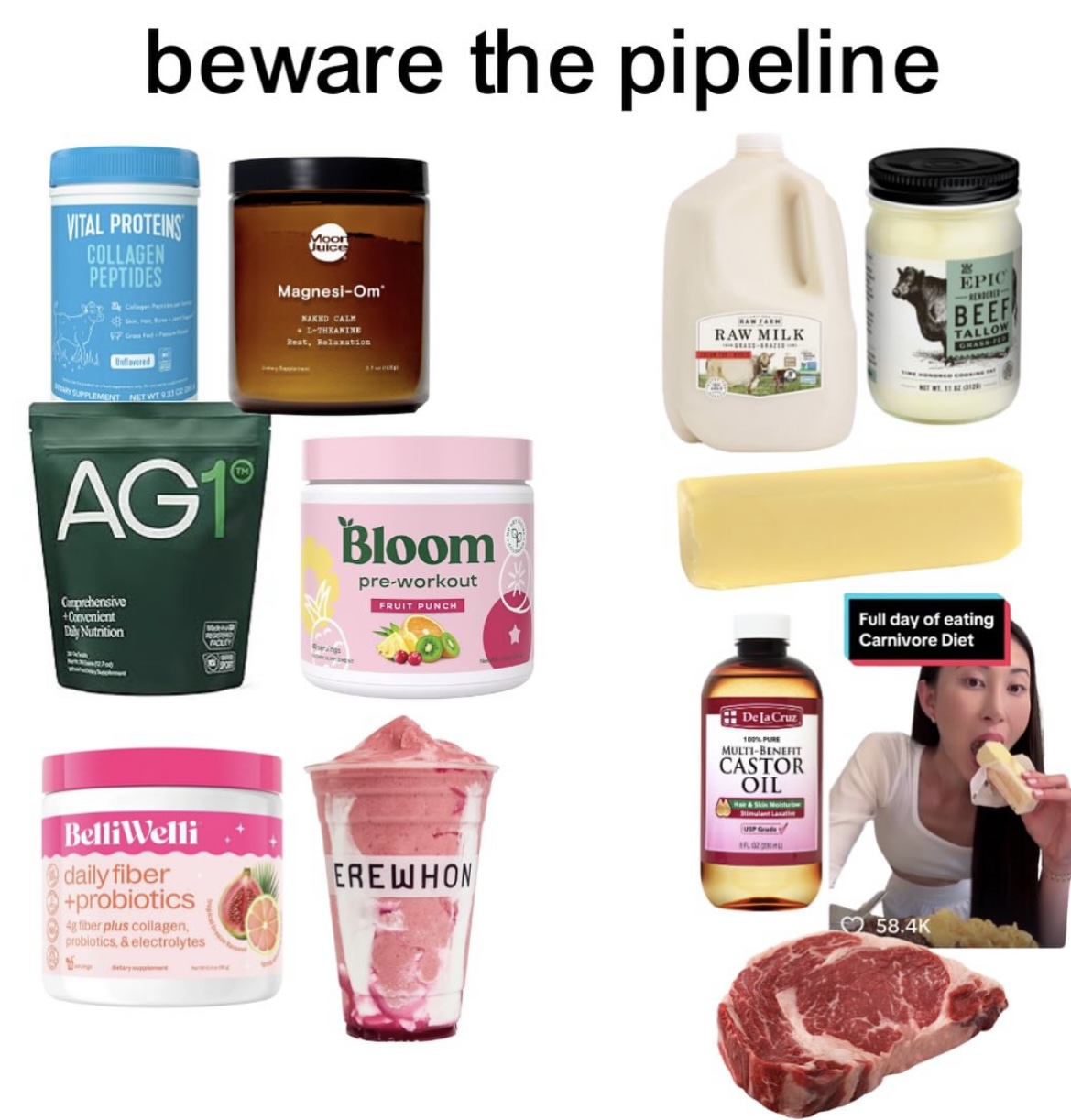
Health is trending! Especially among younger generations like Gen Z and millennials. From sustainable fashion, bio products, and eco-friendly everything. We seem to be opting for a lifestyle that aligns with our health values. But at what cost?
Everyone is obsessed with protein, gut health, low sugar, and clean labels ; but most people don't know what those actually mean, and the food industry is taking advantage of this.
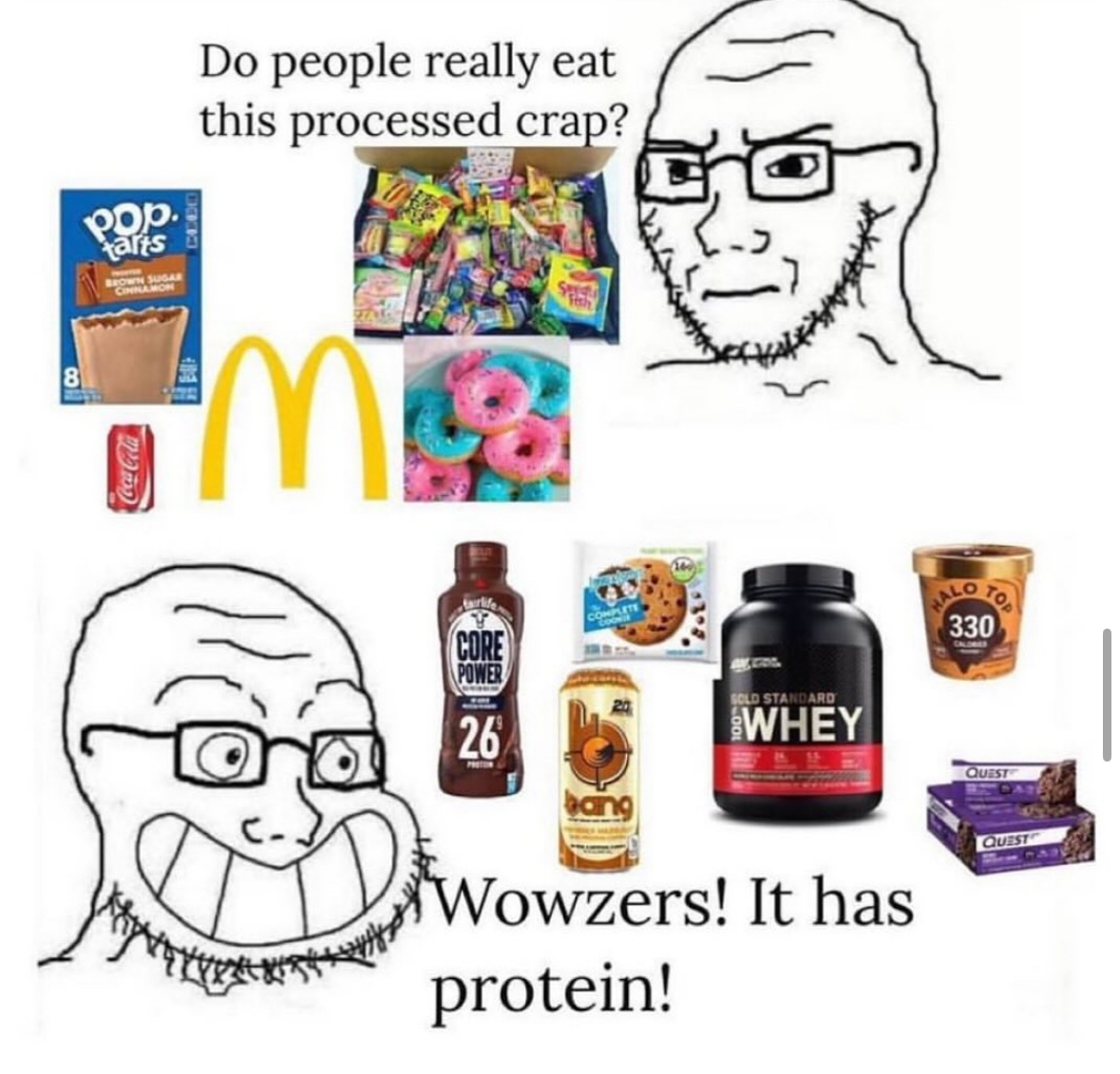
⟡ This trend opens the door for brands and influencers to create products labeled as “healthy”. Like protein cookies and popcorn, collagen chips, and powders full of additives and chemicals. Making ultra-processed stuff look premium and healthy. ⟡
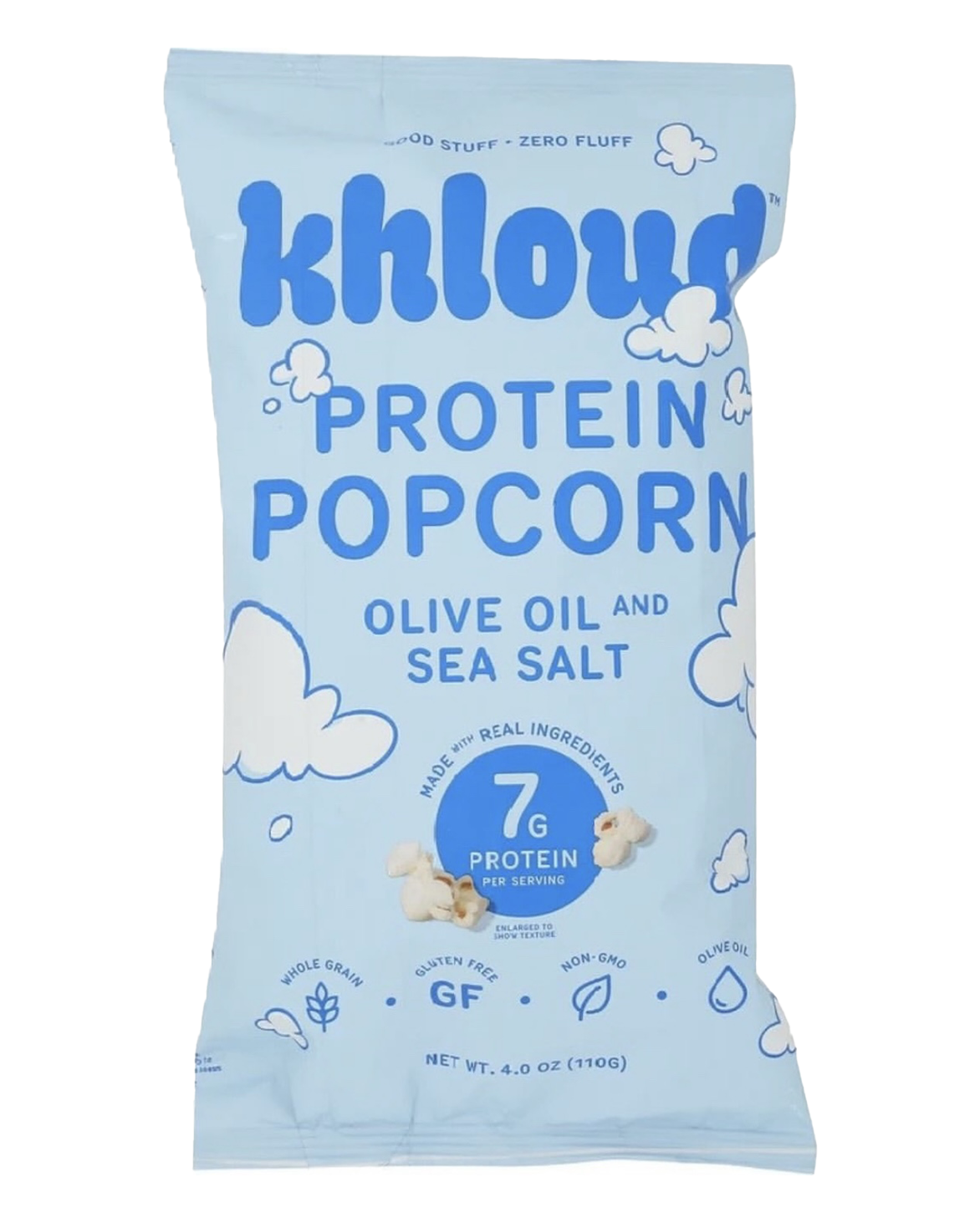
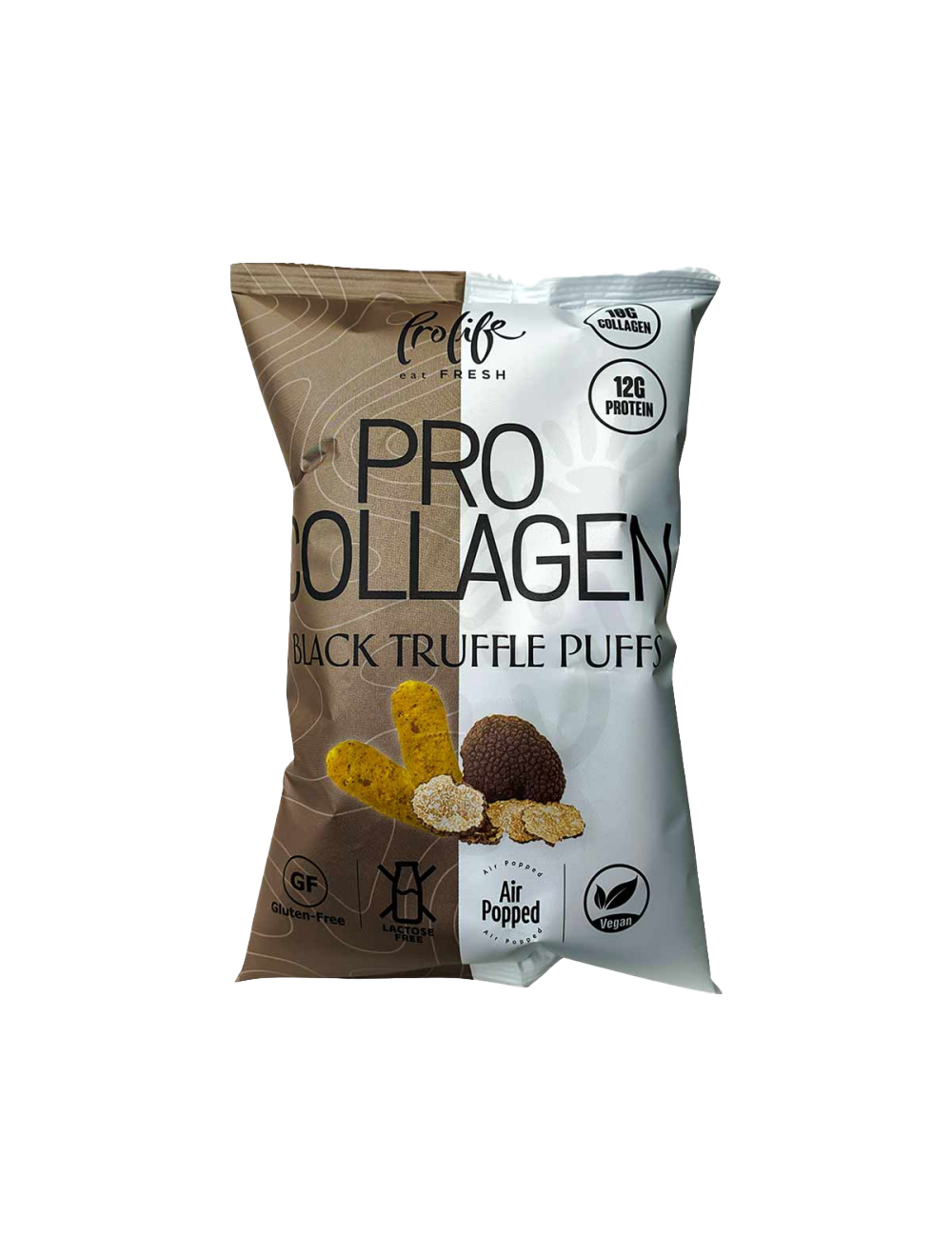
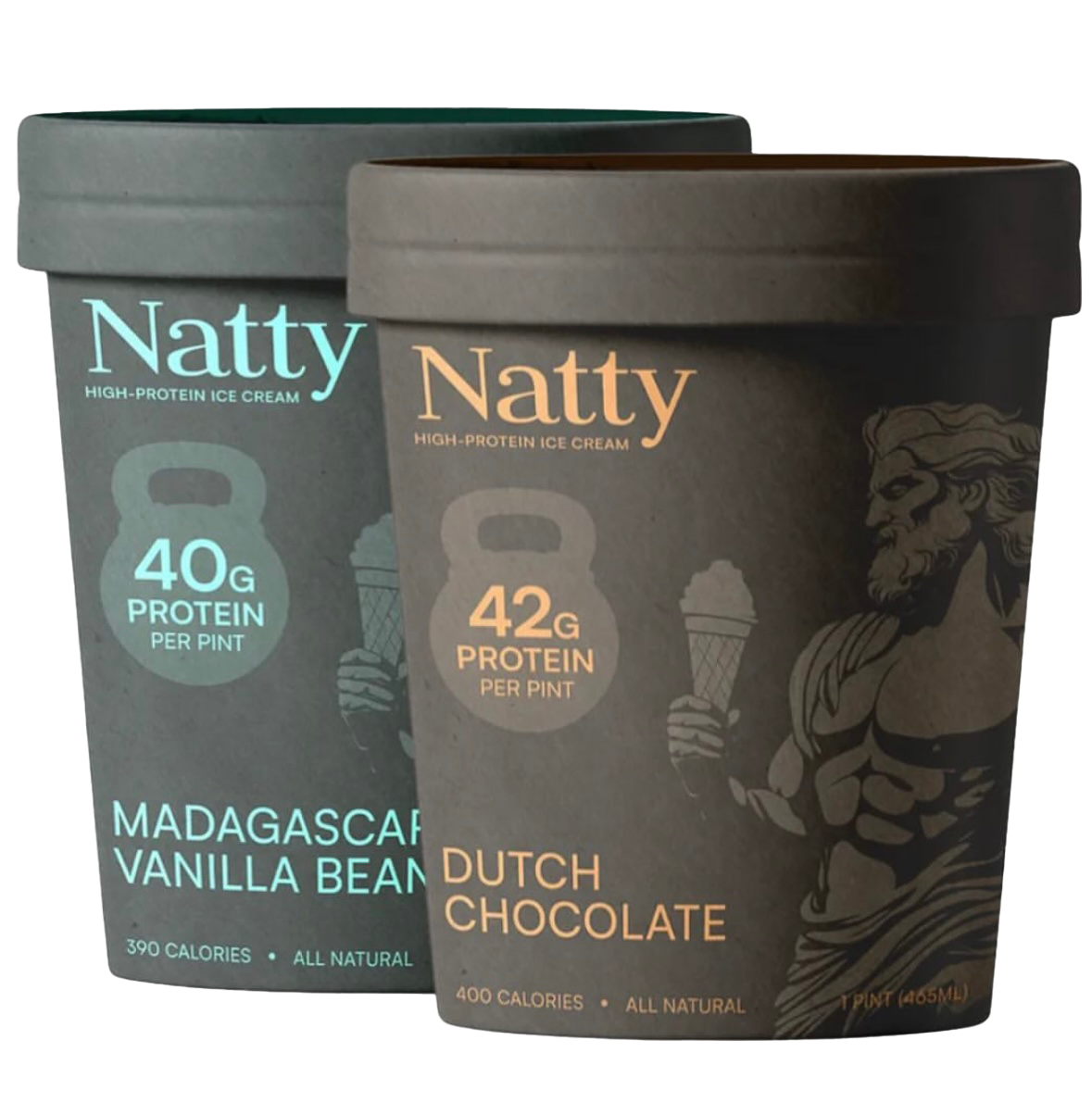
At the same time, there’s been a super recognizable design trend taking over wellness brands. You’ve seen it; loud colors, clean fonts, pastel or neon everything. It’s not subtle, and that’s the point. Brands know you want to be seen. These aren’t just products anymore.
They’re made to be photographed, posted, and shown off. (You probably know exactly what we’re talking about.) And if not, here are a few examples:
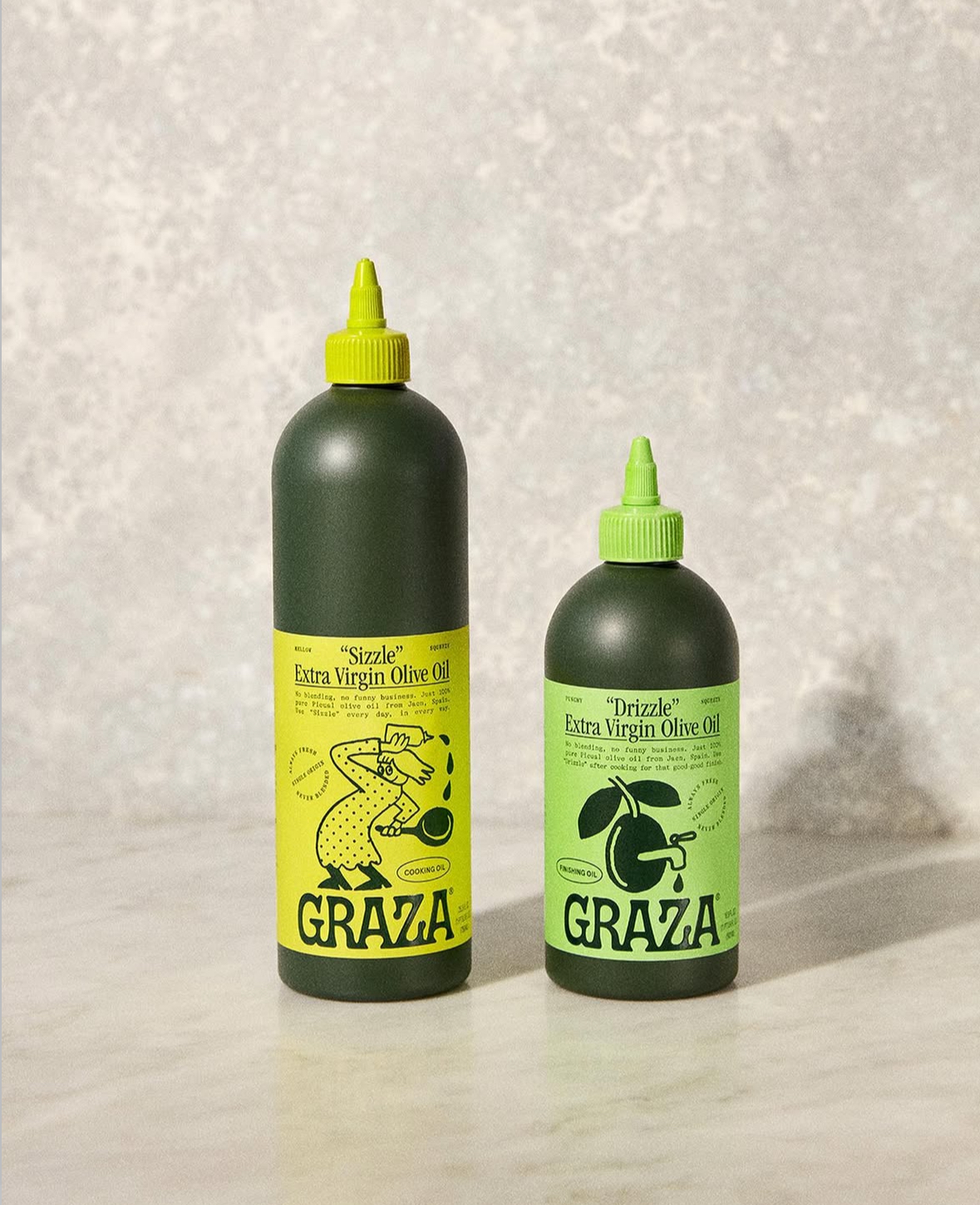
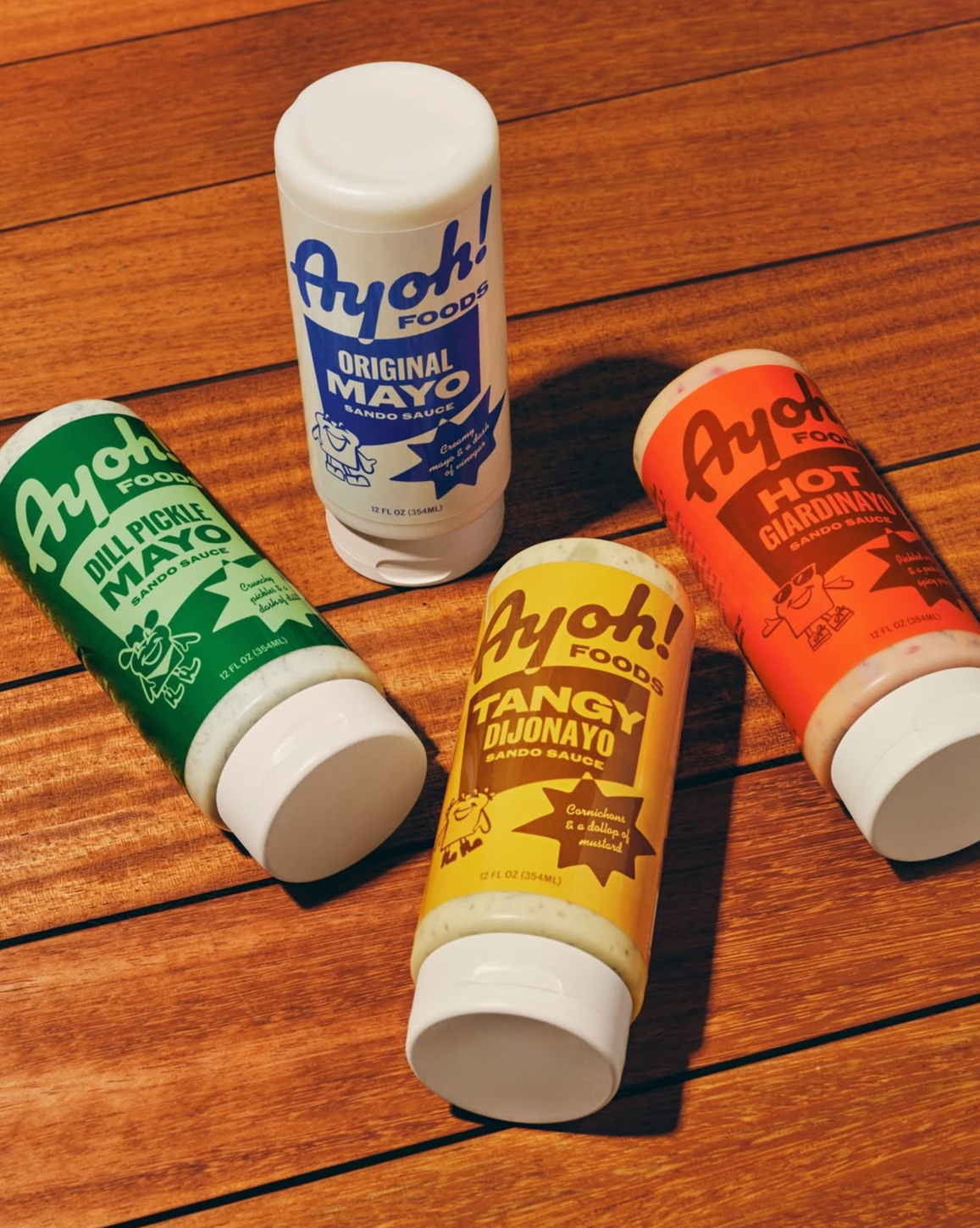
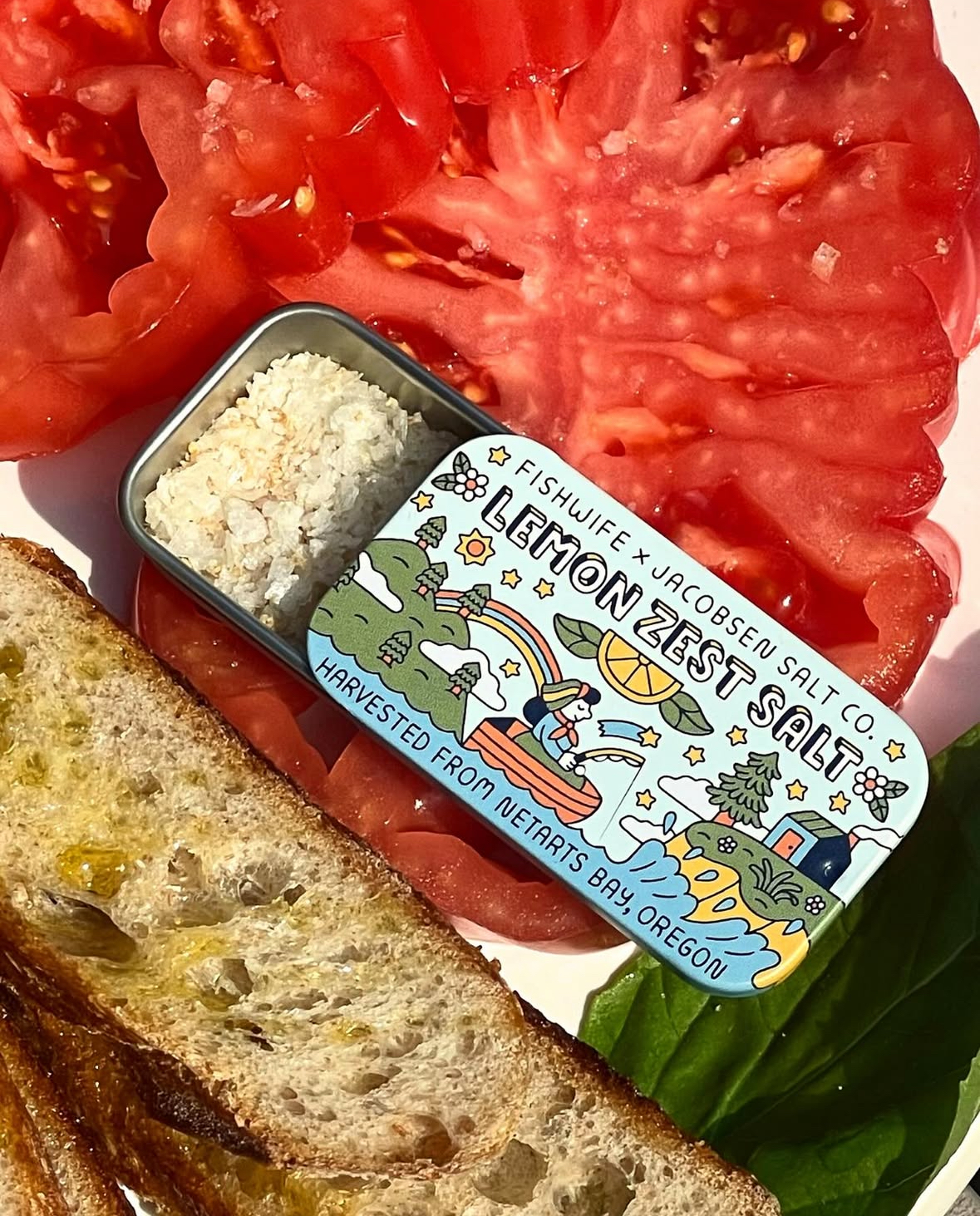
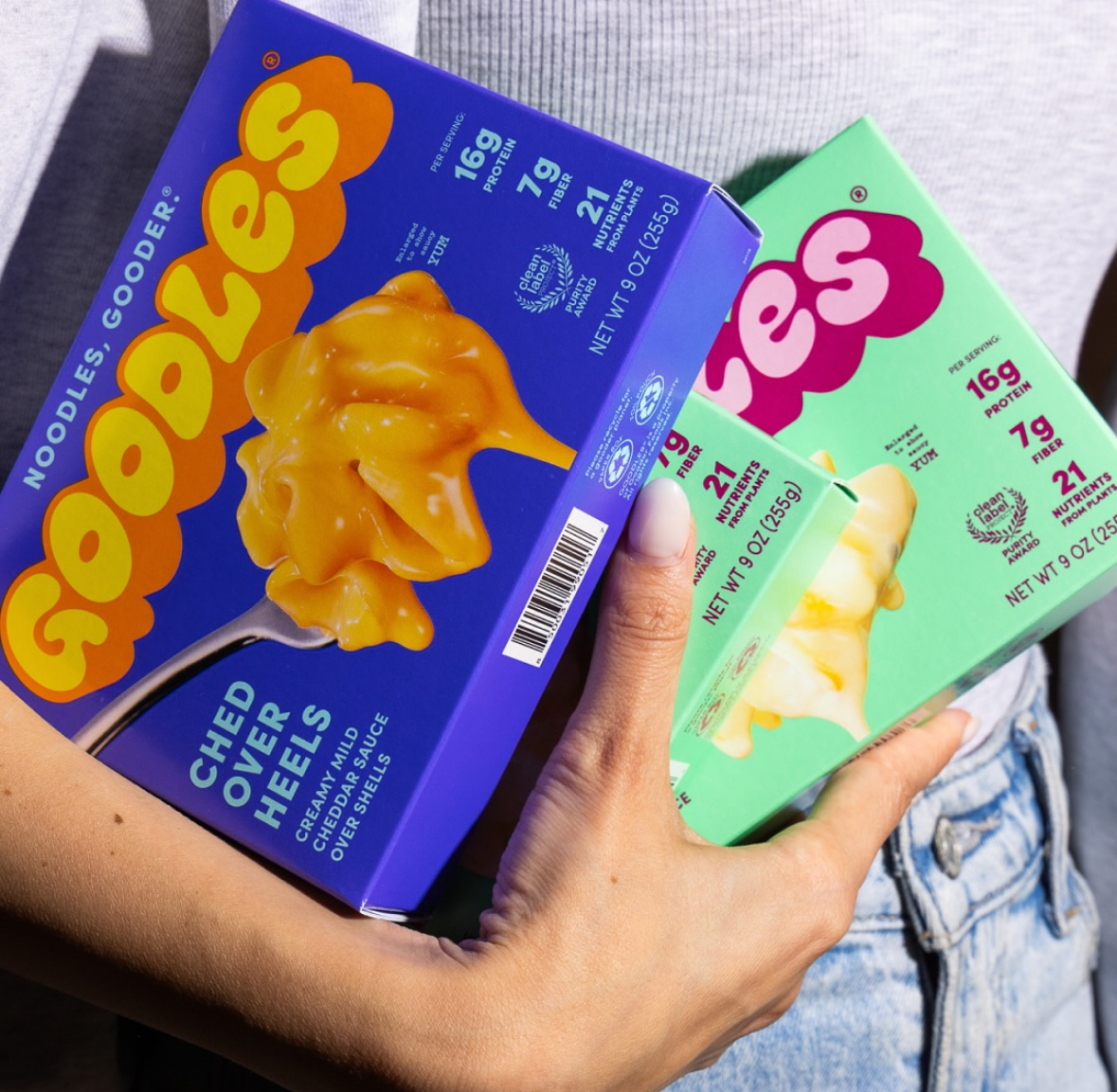
All of these brands scream “healthy,” but also “cool,” “in-the-know,”and “I shop with intention.” They’re not just food or supplements, they’re personality accessories. 𓇗 Little tokens of your curated, conscious, wellness-oriented identity. 𓇗
Think EREWHON in LA, PLANET ORGANIC in London, LA GRANDE ÉPICERIE in Paris, ALANTURA in Berlin. These places aren’t just about food, they’re about aesthetics. Shopping here feels more like attending a curated art show than running errands.
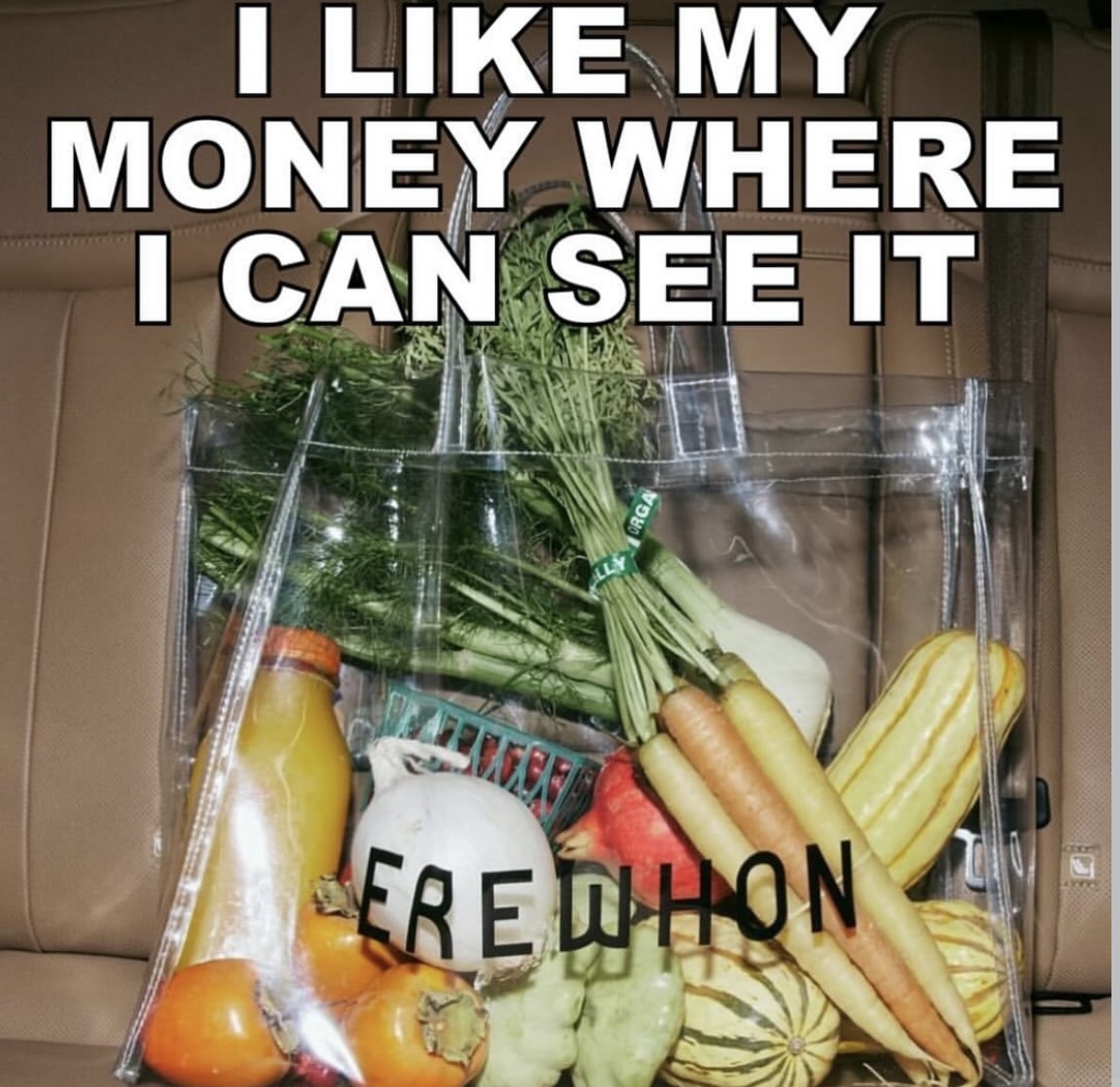
꧁ You’re not just buying groceries, you’re performing.꧂ A $20 smoothie laced with matcha, sea moss, and some cryptic adaptogen? Isn’t just a drink, it’s a status update. A sign that you “get it.”
And it's obvious that these places aren’t built for everyday budgets. But that’s kind of the point. They’re the fashion boutiques of the food world. Exclusive, aesthetic, and a little absurd. Going to Erewhon isn’t about eating. It’s about being seen eating at Erewhon.
High-quality produce, especially organic, is becoming harder to afford. What used to be considered basics, such as high quality fruits, vegetables, and grains, now come with premium price tags.
Across Europe, organic food can cost up to 80% more than non-organic options. And with prices rising in general, 𓇬 even a simple grocery haul can feel out of reach. 𓇬
Still, the internet keeps selling the dream. Perfectly organized fridge tours on IG and Tik Tok, rows of colorful produce, glass containers filled with prepped veggies, and $12 almond milk. It’s less about food and more about lifestyle branding.
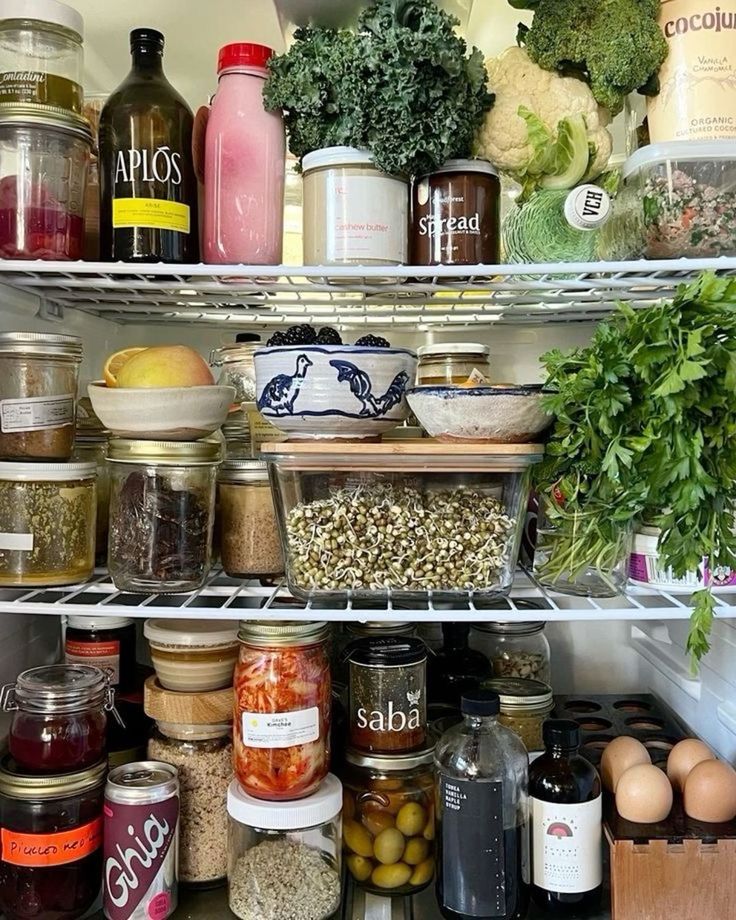
𖤝 In the end, wellness isn’t just expensive, It’s being marketed like it’s aspirational. And for a lot of people, it’s unattainable. 𖤝
When wellness gets too expensive at home, people start looking elsewhere. More and more, people from wealthier countries are packing up and moving. Or at least spending seasons in places like Mexico , Portugal , Bali , and other third world countries to “live better for less.”
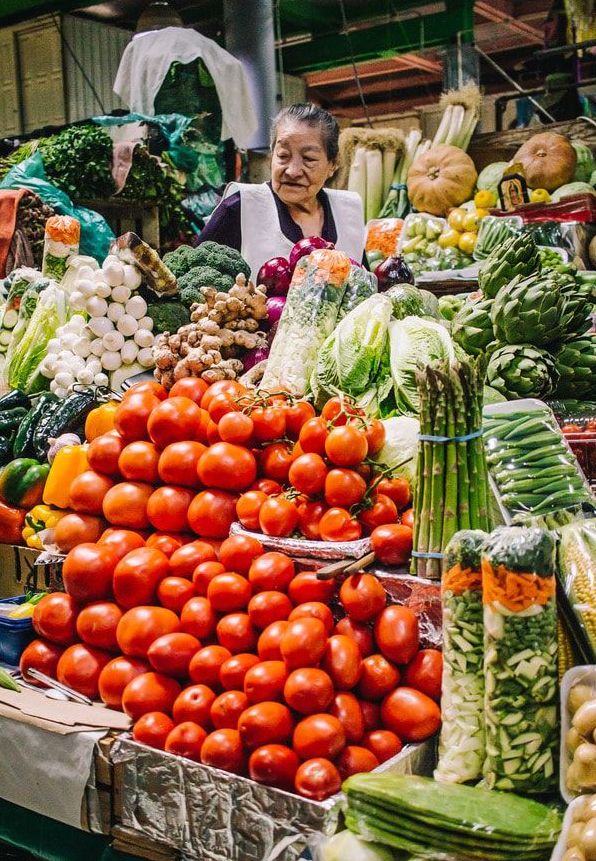
People chasing what’s become out of reach in their own cities: access to high quality, fresh, local produce, slower living, and a more “natural” lifestyle. In these places, wellness feels affordable again. At least for them.
But this shift isn’t harmless. As wellness tourism grows, so do local prices. Local markets are becoming hotspots for foreigners. Organic produce, once part of the regular diet, starts getting priced like it’s luxury.
❦︎ This is wellness gentrification. It makes the basic food items inaccessible for the locals, and forces them to look for other places to shop at, or to downgrade on the quality of the produce they buy.❦︎
What started as a personal health move becomes part of a global ripple effect. One person’s wellness journey can quietly raise the cost of living for someone else.
